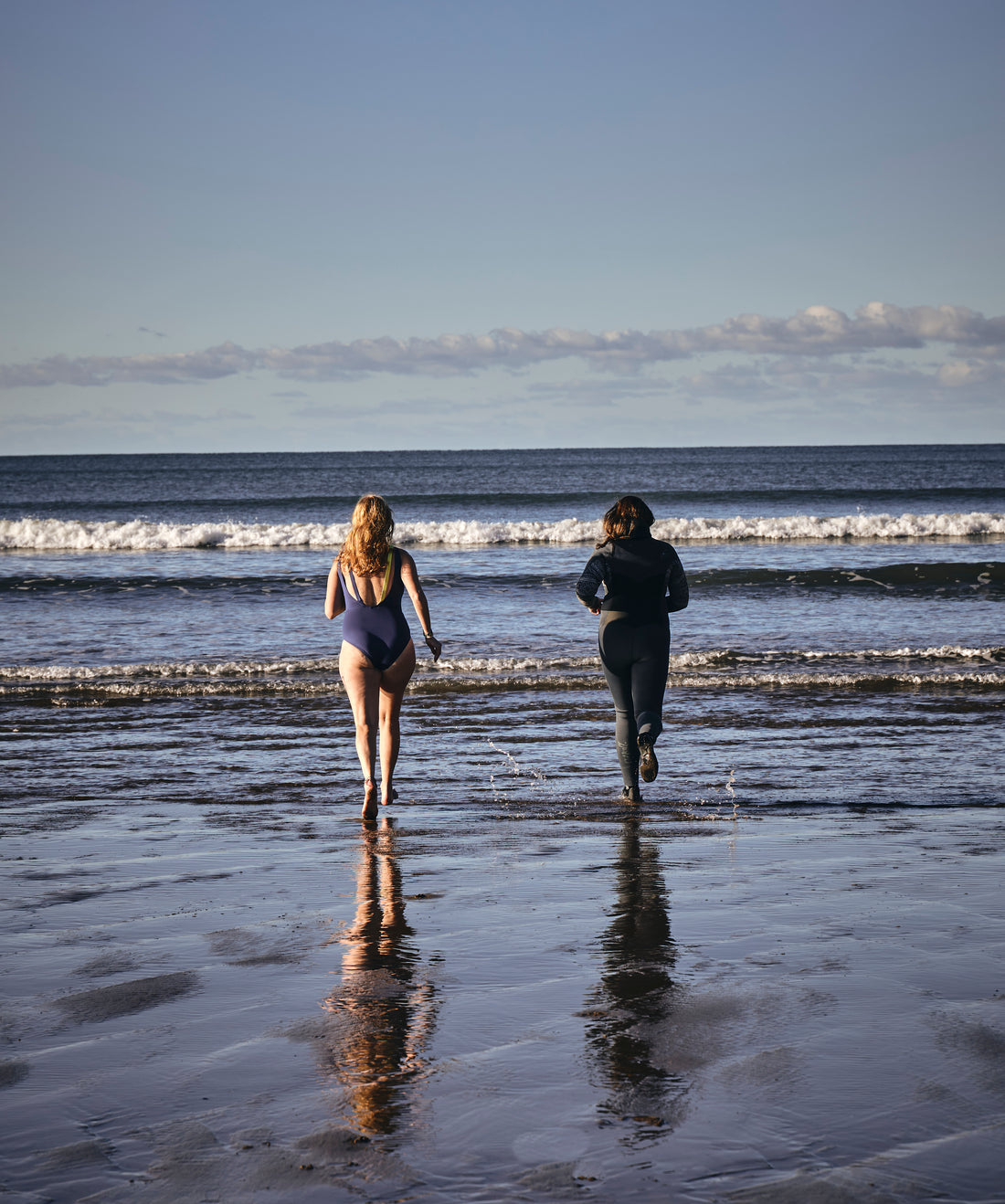For some, getting in for a dip on New Year's Day is a great way of celebrating the first day of a new year. There are many social swim clubs and groups across the country meeting up on the 1st January 2023, making it safe, sociable and fun.
Join a group or dip with friends, and here's a few tips to keep you warm and safe!
1. Take cold showers. Running up to your dip, take cold showers, or run them warm to start with, turning to cold at the end. This help your body acclimatise to a lower water temperature..
2. Choose the right equipment. If you're not a regular cold water swimmer then you may want to use a wetsuit, gloves and boots etc., helping regulate your core temperature. Neoprene wetsuits trap a thin layer of water directly against your skin which helps insulates your body, keeping it warm from the freezing waters.
Other equipment such as tow floats, whistles, waterproof zip-locked phone bags can be beneficial to increase visibility and buoyancy.
3. Assess the conditions. Checking the weather and conditions of the water is crucial. Tides, rough waters and sea and air temperatures - all play an important part. The colder the water the less time you should stay in. When you go into cold open water it's important to enter in slowly, allowing time for your body to get used to the cold. To help you acclimatise, splash cold water on your face and breath regularly as you enter.
Remember that cold water can affect your swimming ability, so once you're in the water stay close within your depths and swim parallel to the shore. Keep an eye on your entry and exit point, as winds and currents can push you off course and if you start to feel cold, get out.
4. Warming up. Take plenty of warm clothes and ideally a changing robe . Remove your damp swim wear and get dry and warm as quickly as possible. Gloves, thermal socks , hat, hot water bottle, a hot water bowl for your feet and a hot drink - are all good additions for the aftermath.
5. Swim and dip with company. Always go with a buddy and if possible a familiar spot. Let people know where you're going and when you'll be back; and if in doubt about the conditions, or advised against it by swimmers who have been in, then don't go in.
For more information and advice, check out the the RNLI and The Outdoor Swimming Society
